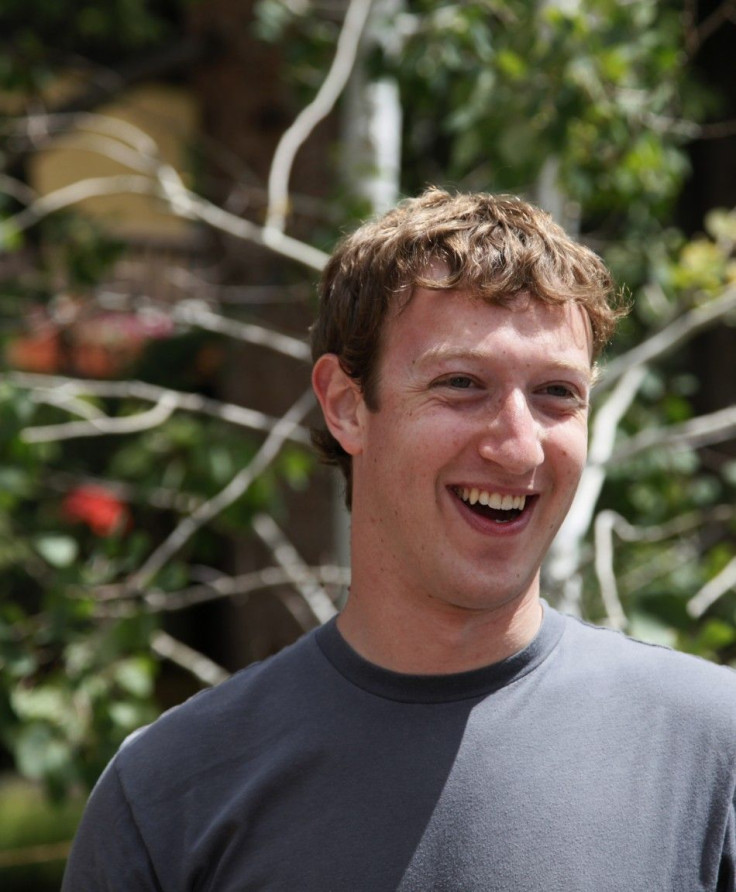Facebook IPO: Zuck's Huge Payday Puts Him in the Biggest Leagues of All

Now that the filing is available, it's pretty clear that before he turns 28, Facebook CEO Mark Zuckerberg will be a billionaire. Maybe, if the initial public offering is as successful as hoped, he'll be worth about $28 billion.
Not bad for a Harvard dropout who came up with a great idea for handling the freshman yearbook back in 2004. Never mind what Tyler and Cameron Winklevoss say, the whole thing is in Zuckerberg's operation now.
Actually, going public before 30 is par for the course in Silicon Valley. Back in 1996, two Stanford University computer science graduate students, Jerry Yang, now 45, and David Filo, now 45, took Yahoo public in an IPO valued at $33.6 million.
At the time, the two-year-old Sunnyvale, Calif.-based search engine was relatively unique, helped make the Internet fun and was one of the most anticipated offerings of the Internet era. Before long, both Yang and Filo were billionaires. Yang stepped down as a director only last month after working there all his adult life and even served as CEO for a while.
Two more Stanford computer science students, Sergey Brin and Larry Page, both now 38, helped establish Google in Mountain View, Calif., in 1998, taking the company public in 2004 and raising $1.7 billion in that IPO.
Page last year became CEO. Brin is deeply involved in daily management and Google, now with a market value exceeding $200 billion is the premier global search engine as well as a huge Facebook rival. In only six months last year, it signed up 90 million members of its Google+ network, its belated response to Facebook.
By now, Google+ probably has 125 million members, compared with the 845 million Facebook disclosed.
Still, having a couple of billions allows a Silicon Valley executive to do bold things. Google now is preparing to close its $12.5 billion acquisition of Motorola Mobility, the smartphone and consumer electronics maker, to better compete against Apple and other hardware developers.
Having skin in the game also counts for another engineer with an idea, Jeff Bezos, 48, the CEO of Amazon. Bezos sustained a personal loss around $1.8 billion Wednesday when Amazon shares cratered after the company reported a fourth-quarter revenue shortfall. Bezos's fortune - and Amazon's market cap - also took a hit in October. Since then, the market value of Amazon has shriveled by more than $20 billion. Bezos's personal stake has plunged about $4 billion since late October.
That probably won't deter Bezos from continuing to build the world's biggest e-retailer, bookseller and vendor of all kinds of implements. He's also sold tens of millions of Kindle e-readers and as many as 5 million Kindle Fire tablets in the fourth quarter alone in a bid to compete with Apple and make tablets a prime platform for entertainment.
There are other examples of enterpreneurs with skin in the game, including women CEOs like ASK Computer's Sandra Kurtzig and Marimba's Kim Polese who took their companies public, made a bundle and ultimately sold them to, respectively, Hewlett-Packard and BMC Software.
So taking Facebook public will give Zuckerberg enormous market power, currency to buy other companies and responsibility to abide by all the federal securities laws. Will he live up to this new aura as a business leader rather than the ruthless teenager in a hoodie depicted in The Social Network?
The prospectus, which says Facebook would like to raise $5 billion in the biggest-ever Internet IPO, discloses the social networking site is very profitable. Net income for 2011 was around $1 billion on revenue of about $3.7 billion, perhaps below estimates.
Zuckerberg, the prospectus prepared by Morgan Stanley and its co-underwriters says, doesn't plan to sell any shares, so he'll maintain control of nearly one-third of the company for now. That means he will need some adult supervision and guidance, something Yang, Filo, Brin and Page realized early on as they recruited outside CEOs and more experienced senior executives for advice on finance, engineering, law and advertising.
Zuckerberg makes clear that one of his chief advisers will be his current COO Sheryl Sandberg, 43, who was recruited from Google. At one poiint, she was Chief of Staff to U.S. Treasury Secretary Larry Summers. Still, there are parts of his letter to prospective shareholders that belie belief, especially when he writes, We don't build services to make money; we make money to build better services.
The letter also talks about how Facebook allows members to find better products, a kind of boilerplate that could have been written by a Yellow Pages executive in 1962.
Still, Zuck now has taken a huge step to make the Facebook a public utility. Watch the next few months how he performs, especially as official trading date draws near.
© Copyright IBTimes 2024. All rights reserved.












